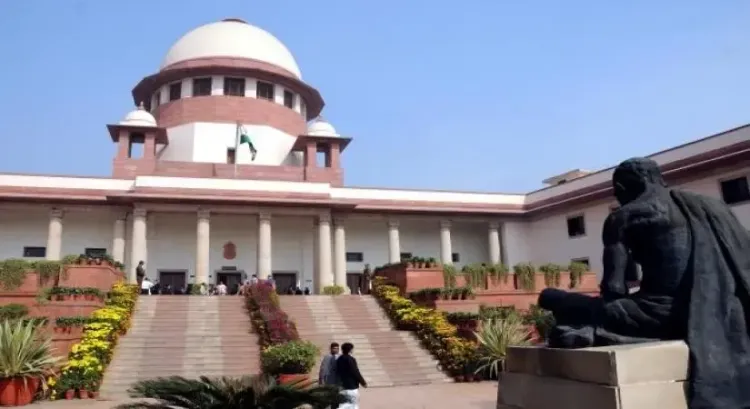What Guidelines Did the SC Issue to Revamp Beggars' Homes Across the Nation?

Synopsis
Key Takeaways
- Supreme Court issued guidelines to improve conditions in beggars' homes.
- Emphasis on rehabilitation over punishment.
- Mandatory health screenings and hygiene standards established.
- Separate facilities for women and children mandated.
- Monitoring committees for accountability created.
New Delhi, Sep 14 (NationPress) The Supreme Court has laid out a comprehensive set of guidelines aimed at transforming the conditions of beggars' homes nationwide, following a case that highlighted the deaths of inmates at Delhi's Lampur Beggars' Home due to contaminated water.
A bench comprising Justices J.B. Pardiwala and R. Mahadevan stressed that beggars' homes should transition from being punitive holding facilities to restorative environments that honor constitutional principles, specifically the right to life with dignity under Article 21.
"Beggars’ homes must not be perceived as quasi-penal institutions. Their purpose should be rehabilitative rather than punitive – they should serve as places for recovery, skill development, and societal reintegration. The term ‘home’ itself embodies significant meaning: it implies safety, dignity, belonging, and care," remarked Justice Pardiwala’s bench.
"Any setup that resembles a prison – marked by overcrowding, unsanitary conditions, involuntary confinement, lack of medical care, neglect of mental health, or limitations on personal freedom – is not just a policy failure but a breach of constitutional rights, infringing upon Article 21," the court added, urging a shift away from viewing impoverished individuals through a criminal lens.
"Beggars’ homes necessitate a fundamental change – from tools of social control to venues for social justice," the apex court emphasized, advocating for a compassionate approach to rehabilitation.
Highlighting the colonial origins of anti-begging laws, the bench observed that such statutes perpetuated a punitive legacy that criminalized poverty instead of addressing it.
"The inability to guarantee humane conditions in these facilities is not merely a case of poor governance; it constitutes a violation of the fundamental right to live with dignity," it noted, issuing extensive directives concerning all beggars’ homes throughout the country.
The court mandated that every person admitted to a beggars’ home undergo mandatory medical screening within 24 hours, alongside monthly health evaluations, disease surveillance to avert outbreaks, and strict hygiene protocols, including access to clean water, functional sanitation facilities, and pest control.
Further, the apex court mandated independent infrastructure audits every two years, prohibited overcrowding to ensure occupancy remains within approved limits, and insisted on safe housing with adequate ventilation and access to green spaces.
"Every beggars' home must appoint or designate a qualified dietician from an associated government hospital to regularly assess the quality and nutritional standards of food provided to inmates. Standardized dietary guidelines should be established to ensure adequate nutrition," the Justice Pardiwala-led bench added.
The Supreme Court also directed the creation of skill development centers to foster economic independence, partnerships with NGOs and private entities for diverse training programs, and ongoing evaluations to monitor the rehabilitation progress of inmates.
Additionally, it mandated that inmates be informed of their legal rights in an understandable language, with panel lawyers from the State Legal Services Authorities visiting beggars’ homes at least once every three months.
The apex court's directives also called for separate facilities for women and children to ensure their safety and privacy, directing that children found begging should be placed in child welfare institutions rather than beggars’ homes.
To ensure accountability and oversight, the Justice Pardiwala-led bench mandated monitoring committees to publish annual reports and retain health incident records, with provisions for compensation and disciplinary measures in cases of negligence leading to death.
"In instances where an inmate's death is linked to negligence, lack of basic amenities, or delays in medical treatment: the state/UT (Union Territory) shall provide reasonable compensation to the deceased’s family; and (b) initiate departmental and, where appropriate, criminal proceedings against the officials responsible," it added.
The Supreme Court ordered that these directives be implemented within six months, instructing the Union Ministry of Social Justice and Empowerment to formulate and publish model guidelines within three months to ensure consistent enforcement across all states and union territories (UTs). It further requested the apex court registry to circulate a copy of the judgment to the Chief Secretaries of all states and UTs, as well as to the Secretary of the Union Ministry of Social Justice and Empowerment, for strict adherence.





